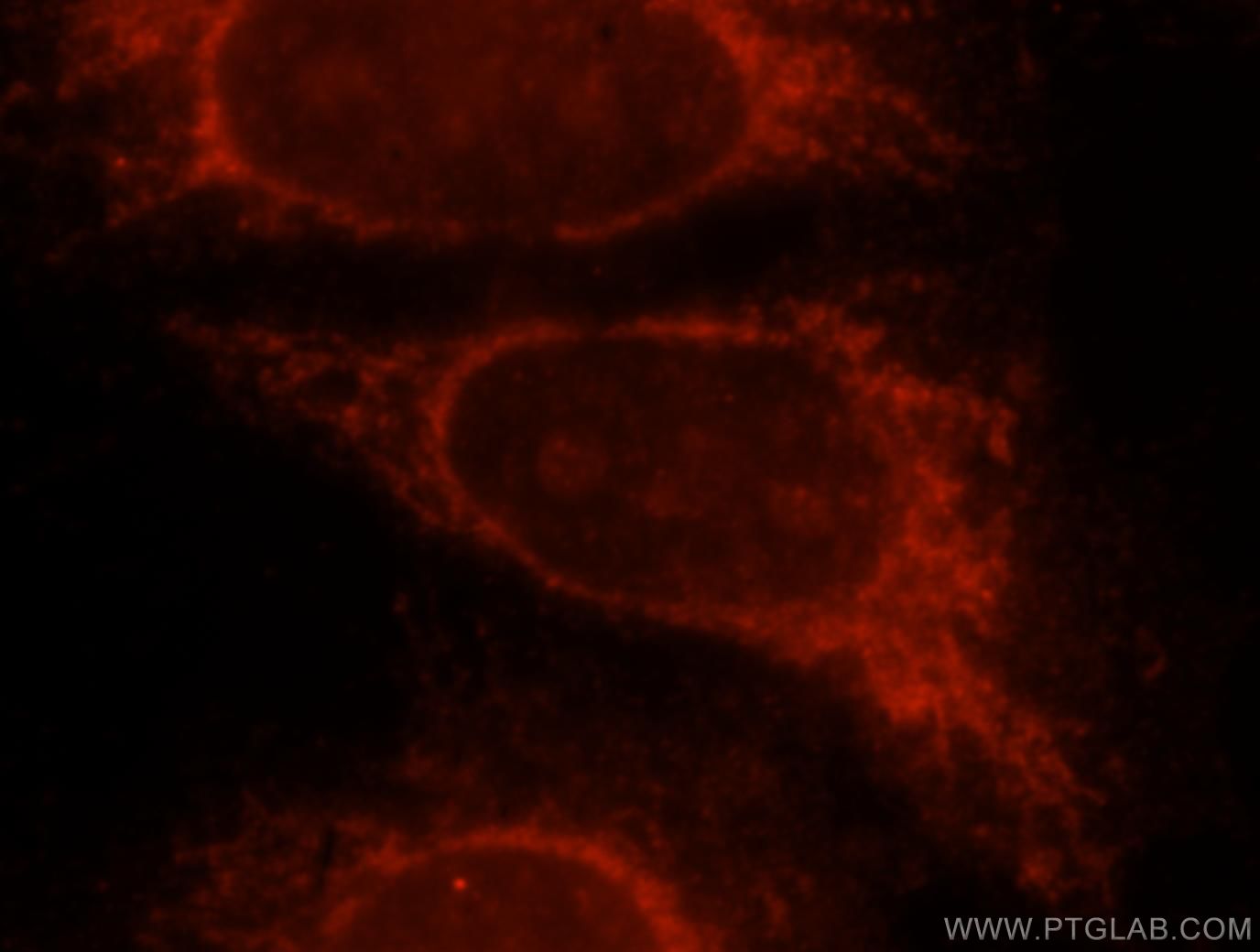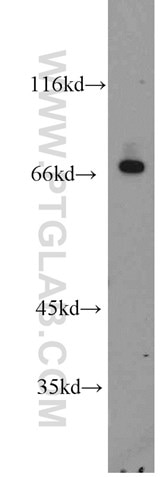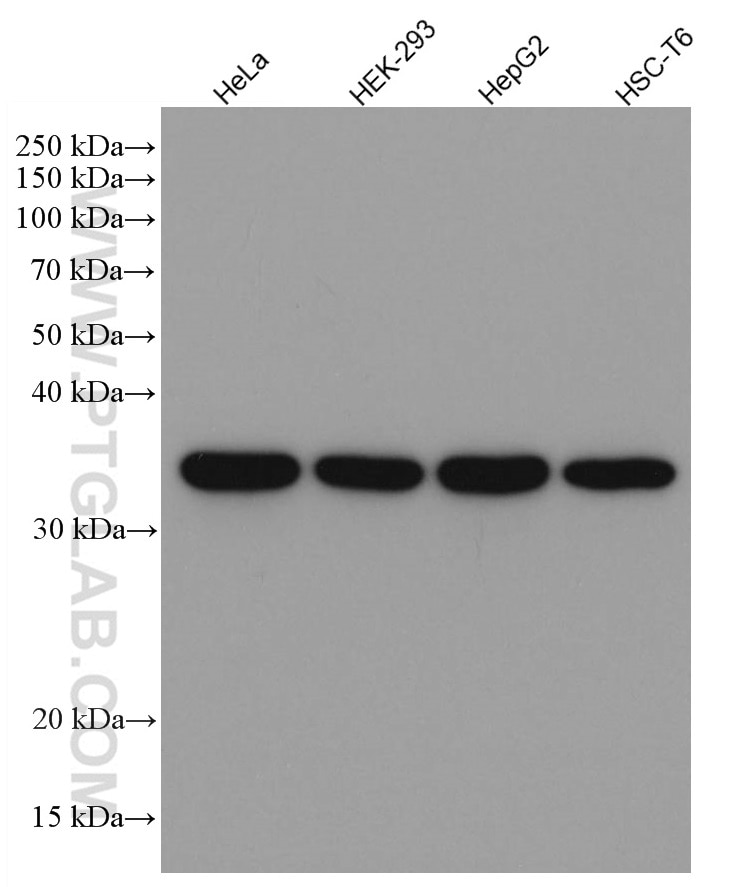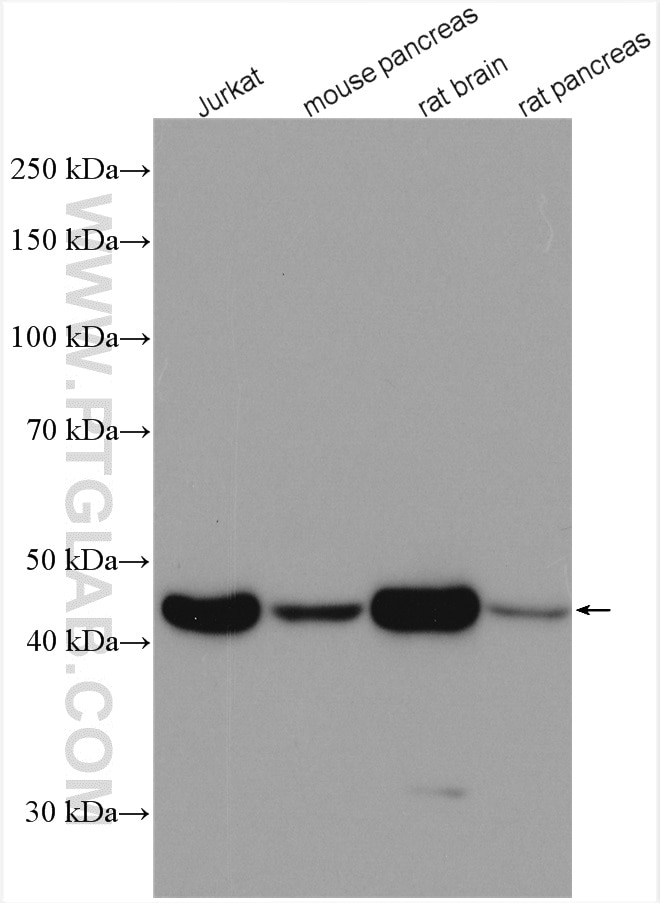Beta Galactosidase Antibody
Beta-galactosidase: An essential enzyme
Overview
Beta-galactosidase, also known as beta-Gal or GLB1, is an essential enzyme that hydrolyzes beta-galactosides into monosaccharides. It cleaves beta-linked terminal galactosyl residues from gangliosides, glycoproteins, and glycosaminoglycans.
| Antibody | Type | Catalog number | Applications | Citations |
| Beta-galactosidase | Rabbit polyclonal | 15518-1-AP | ELISA, WB, IF, IHC | 6 |
View the Beta-galactosidase product page here |
| Beta Galactosidase | |
 |
 |
| Immunofluorescent analysis of Hela cells using GLB1 antibody at 1.25 dilution and Rhodamine-labeled goat anti-rabbit IgG (red). | SH-SY5Y cells were subjected to SDS PAGE followed by western blot with 15518-1-AP(GLB1 antibody) at dilution of 1:400 |
GLB1 (Beta-galactosidase) is also named as ELNR1, Lactase. It cleaves beta-linked terminal galactosyl residues from gangliosides, glycoproteins, and glycosaminoglycans. This protein is identical to the elastin-binding protein (EBP), a major component of the nonintegrin cell surface receptor complex expressed in fibroblasts, smooth muscle cells, chondroblasts, leukocytes, and certain cancer cell types. Defects in GLB1 are the cause of GM1-gangliosidosis type 1 (GM1G1), GM1-gangliosidosis type 2 (GM1G2), GM1-gangliosidosis type 3 (GM1G3) and mucopolysaccharidosis type 4B (MPS4B).
Related products
Loading control antibodies
| GAPDH Antibody |  |
| Catalog no.: 60004-1-Ig | |
|
GAPDH is commonly used as a protein loading control in western blot due to its consistently high expression in most cell types. This enzyme participates in several cellular events such as glycolysis, DNA repair, and apoptosis. Proteintech monoclonal GAPDH antibodies are raised against a whole-protein antigen of human origin and have over 4,960 citations. |
| Beta Actin Antibody (KD/KO validated) |  |
| Catalog no.: 66009-1-Ig | |
|
Beta-actin is usually used as a loading control due to its broad and consistent expression across all eukaryotic cell types and the fact that expression levels of this protein are not affected by most experimental treatments. 66009-1-Ig has been cited in over 2,460 publications and has wide species reactivity. |





